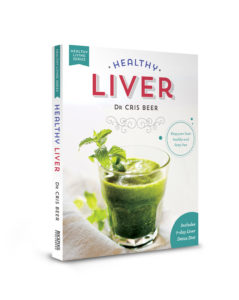Article in Body and Soul
It’s easy to write it off as just an unavoidable part of life, but stress is its own poison and the root cause of many of the illnesses we face
Stress is toxic. So toxic that it poisons your body and mind to the point where you can be totally debilitated. Worst of all, the effects seem to creep up on you and leave you feeling worn out, depressed, anxious and overweight. In short, stress can kill you softly.
It’s been estimated that 60 to 80 per cent of all the reasons that people see a GP are due to stress related conditions. These include fatigue, headaches, an inability to lose weight, mental health issues, insomnia, digestive issues, muscle tension difficulties conceiving, recurrent infections, and even high blood pressure, heart disease and cancer.
Such health issues can take time to recover from, depending on how long you’ve been under stress and the type you’ve been experiencing. The worst types are repeated stress and chronic stress. So, what exactly are these and how do you avoid them?
Repeated Stress
This type of stress affects you on a frequent and recurrent basis. Common examples include: bad traffic, paying bills, noise, crowds, sleep disturbance, loneliness, isolation, hunger and danger.
This can be overcome with stress-reduction techniques such as deep breathing, meditation, mindfulness and regular relaxing exercises such as yoga and Pilates. These activities help activate our parasympathetic nervous system –which is literally our “de-stress” nervous system. Practice makes perfect when it comes to winding down, so try incorporating these stress-reducing activities daily.
Chronic Stress
This is by far the worst type of stress as it literally drains your energy, speeds up ageing, lowers mood and steals your health. It also doesn’t just go away. It happens, for example, when we’re having relationship troubles, not enjoying our job, are constantly worried about an issue or have suffered an injury or chronic illness. The cause may be obvious or subtle but has to be present for at least three to four weeks to be classified as ‘chronic’. When this occurs, the stress hormones adrenaline and cortisol start to rise. Other hormones such as the sex hormones progesterone and testosterone, happy hormone serotonin, and our metabolism-boosting thyroid hormones also start to drop, which can lead to potentially debilitating symptoms (see box, below).
What can you do?
The first thing is to recognise stress producers in your life. Make a list of these from most stressful to least stressful. Work on the top two first. Is there anything about these situations that you can change, even if it involves counselling? Also realise that you can actually be addicted to stress. Learn to recognise when your life has gone from one drama to the next. Is there something in your personality attracting this type of chronic stress? Other techniques include getting a good night’s sleep, regular time out from your busy schedule, exercise, laughing daily, reducing caffeine and alcohol, forgiving others, and meditating regularly. The key to managing stress is to recognise when it’s ruining your body and mind and to put measures in place to challenge it.
#healthyhabits #healthyliver
Dr Cris
Holistic Medical Doctor, Author ‘Healthy Habits, 52 Ways to Better Health‘ and Healthy Liver



